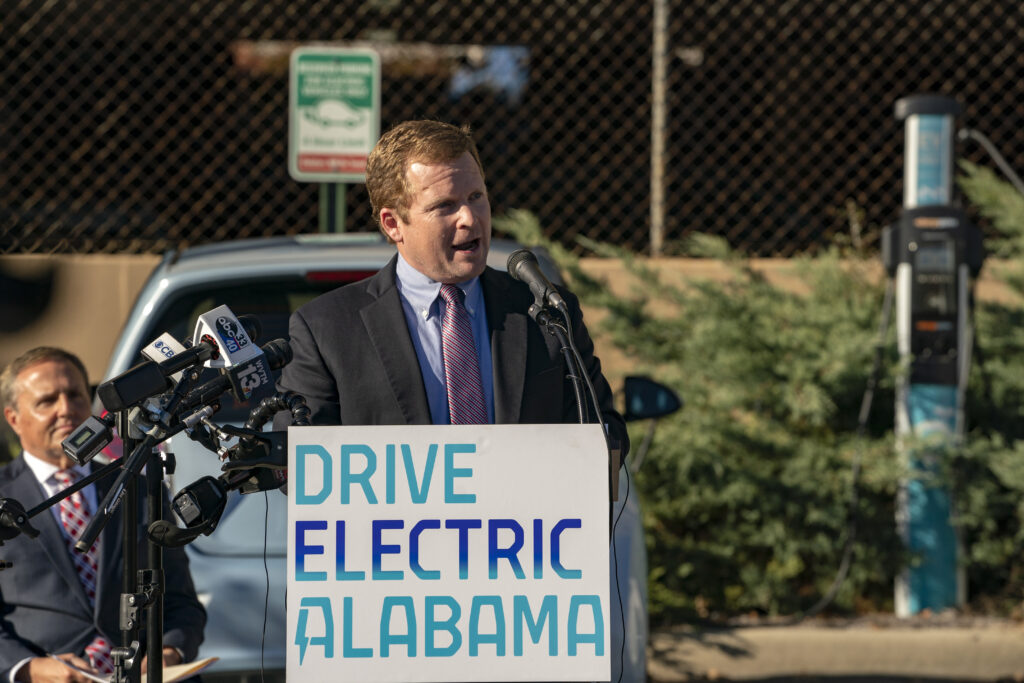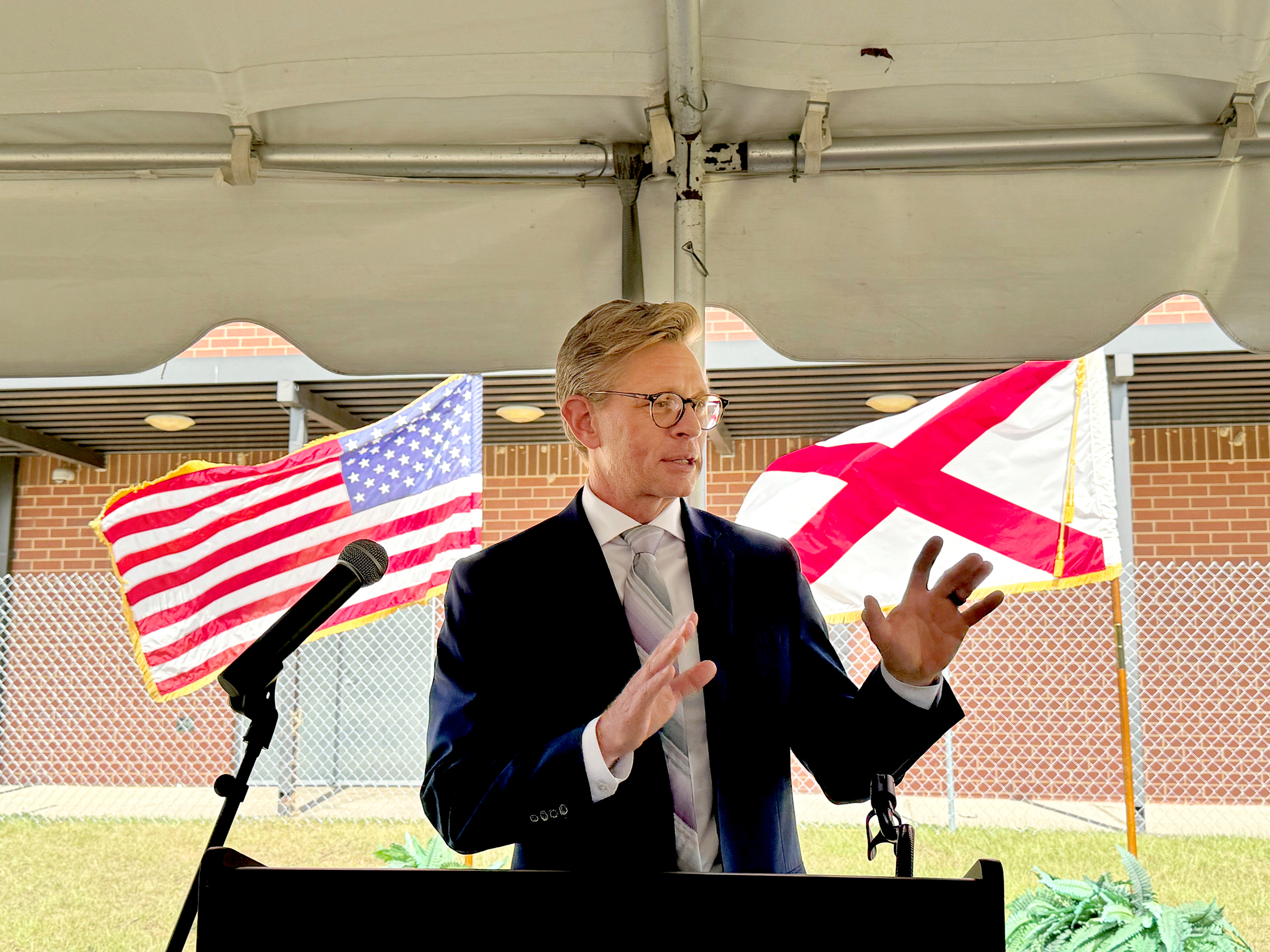Michael Staley is president of the Alabama Clean Fuels Coalition (ACFC), a non-profit dedicated to reducing American dependence on foreign oil by supporting efforts to expand markets for alternative transportation fuels and advanced technology vehicles. Staley says fuels such as electricity, propane, and natural gas can reduce transportation costs for businesses and consumers and deliver better air quality for communities.
With so much recent development in the electric vehicle (EV) market, we asked Staley to explain why families and businesses should consider their EV options next time they are purchasing a new or used vehicle.

Tell us a little about your growing-up years, career and family.
I grew up in Memphis, attended Mississippi State for two years, and then graduated from the UAB School of Business in 2003. Congressman Spencer Bachus hired me straight out of college, and I was honored to serve as his chief of staff from 2007 until his 2014 retirement from Congress. I will always be thankful to Spencer for enabling me to work at the highest level where business, government, and society intersect in our country. Out of that experience, I have committed my career to serving clients I believe in and can defend to my family and my friends. My wife, Kate, is currently taking time away from her job as a nurse practitioner to be a full-time mom to our son Ryan, who turns three in May.
How did you get involved with the Alabama Clean Fuels Coalition?
The Alabama Clean Fuels Coalition was an organization that I became familiar with while working for Congressman Bachus, so I had my first periodic interactions with the group and its leaders in that capacity. Our conversations always challenged the stereotypical expectations of an air quality advocacy organization in the halls of Congress. As a congressional staffer, I traveled to many foreign countries and witnessed first-hand the impacts of uncontrolled emissions on public health and the environment.
ACFC leaders came across to me as genuinely caring about bringing people together to advance domestic air quality through common sense solutions. When I was approached years later to lead the organization, I saw it as an opportunity to improve my community by promoting transportation efficiency; to help save people and businesses money using advanced technology; and to strengthen Alabama’s capacity for economic growth and vitality, particularly in the transportation sector.
What strides have you seen in the electric car industry in Alabama?
Three major forces are at play when we talk about electric vehicles in Alabama. They are our state economy, politics, and EV technology. First, as a top automotive manufacturing state, Alabama is on the leading edge of automotive research and development in a world that is embracing electric transportation. Second, people often write off electric vehicles as some far-fetched progressive pipe dream, but further investigation reveals something much different from opinions shaped in the political arena. Donald Trump, not Joe Biden, was president in 2017. That was the same year Mercedes announced more than $1 billion investment to build EVs and EV batteries in Alabama.
In supporting EV technology, Alabama leaders are responding to automakers who are major job creators, not politics, and this will keep our state competitive at the top of the list of American automobile manufacturing and exporting states for the next generation at least.
What’s the one thing people need to think about when considering how an electric car may fit into their life?
Don’t let your mind get stuck on early EV models that topped out with less than 100 miles of range and often looked like a car you’d expect to see at the circus. If you have a house with electricity, recognize that you have a very low-cost vehicle fueling station at home. If your employer offers charging, that might be free! Electricity also has very low price volatility.
EV fuel efficiency ranges from 2 miles per kilowatt hour (kWh) for a pickup truck to 5 miles per kWh for some of the most efficient models. Charging a 2mi/kWh electric pickup truck at home will cost around 7 cents per mile. For comparison, an 18MPG gasoline truck will cost about 18 cents per mile to fuel when gasoline prices are around $3.30 per gallon. EVs don’t need $75 oil changes or $250 transmission services, either. If you are worried about EV battery life, ask your dealership about EV warranties. Lastly, find out if there are tax incentives to install a charger at home or to purchase an EV which could sweeten the deal even more.
Is Alabama in good shape to provide the infrastructure needed to power all the electric cars anticipated in the coming 5 to 10 years?
Electric utilities constantly plan to understand and adapt to changes in electricity demand from their customers. I am confident Alabama utilities are preparing for a future that involves steady increases in electric transportation fueling.
Will you be considering an electric vehicle for your family?
We are a two-car household and expect the next vehicle we purchase to run on electricity.




